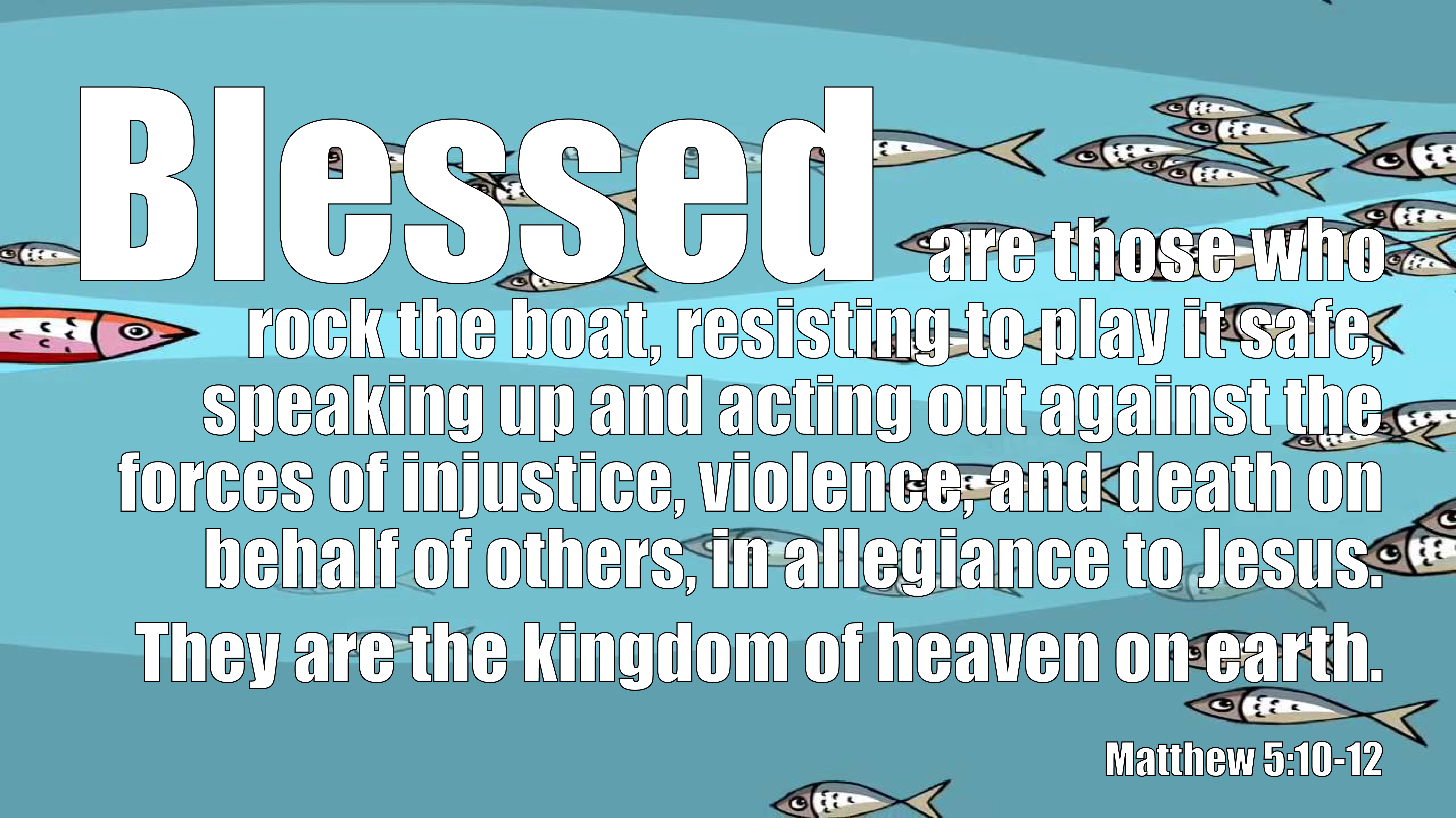
Luke 4:16-30; Matthew 4:23-5:12
Resistance is a big word in our culture today. Some are for it, some are against it. Our cries to resistance usually have to do with what, or whom, one is resisting. Such “go against the flow” dynamic is inherent in today’s beatitude. We read the word persecution as negative, something to avoid. But what if Jesus is exhorting us to seek it out, or at least deserve it? The original word used in the text implies persecution but means first and foremost to be pursued, or chased or desired. Could it be that what Jesus is teaching us to do is more along the lines of living like the prophets? They were repeatedly persecuted (by believers and nonbelievers) for having the gall to continuing naming the ways in which society and the larger culture were opposed to the priorities of God. Think of Amos. Isaiah. Zechariah. Even Jesus.
The passage from Luke 4 shows us what that looks like. Jesus receives a standing ovation and then within minutes, the crowd wants to lynch him because he dared to talk about what they didn’t want to hear: that God loves all people (Jews and Gentiles). They, then, like us, today, lived in a culture of opposition, rooted in zero-sum-thinking of us verse them. Jesus spoke up and acted against that, pointing to a different nonviolent, redemptive way of life in God. What if Jesus is really challenging us not to seek out persecution as much as to perturb for God’s good? Not to see ourselves as victims as much as to renounce and redeem the godless violence of our world and culture? What if it’s less about dying on a cross than lifting the cross up, stopping in the flowing currents of our culture to reflect on who we are, what God wants for us and then acting upon such grace – even if that means not playing it safe and rocking the boat? Jesus isn’t trying to create a revolution as much as reminding us to what kingdom we do in fact belong: his.
Bishop Oscar Romero was assassinated while leading worship in El Salvador where he spoke up and acted out for what he believed the gospel meant for his culture and people. In a journal entry of April 9, 1978, he wrote:
A church that doesn’t provoke any crises,
a gospel that doesn’t unsettle,
a word of God that doesn’t get under anyone’s skin,
a word of God that doesn’t touch the real sin
of the society in which it is being proclaimed –
what gospel is that?
Very nice, pious considerations
that don’t bother anyone,
that’s the way many would like preaching to be.
Those preachers who avoid every thorny matter
so as not to be harassed,
so as not to have conflicts and difficulties,
do not light up the world they live in.
They don’t have Peter’s courage, who told that crowd
where the bloodstained hands still were
that had killed Christ:
“You killed him!”
Even thought the charge could cost him his life as well,
he made it.
The gospel is courageous,
it’s the good news
of him who came to take away the world’s sin.
Questions for the practice of Examen & Contemplation
- What strikes you in these passages?
- How have you experienced speaking up and acting out for the cause of the nonviolent Jesus as a blessing?
Download the PDF Study Guide for the texts that we’ll use in our class discussion @CAPCOakland HERE.